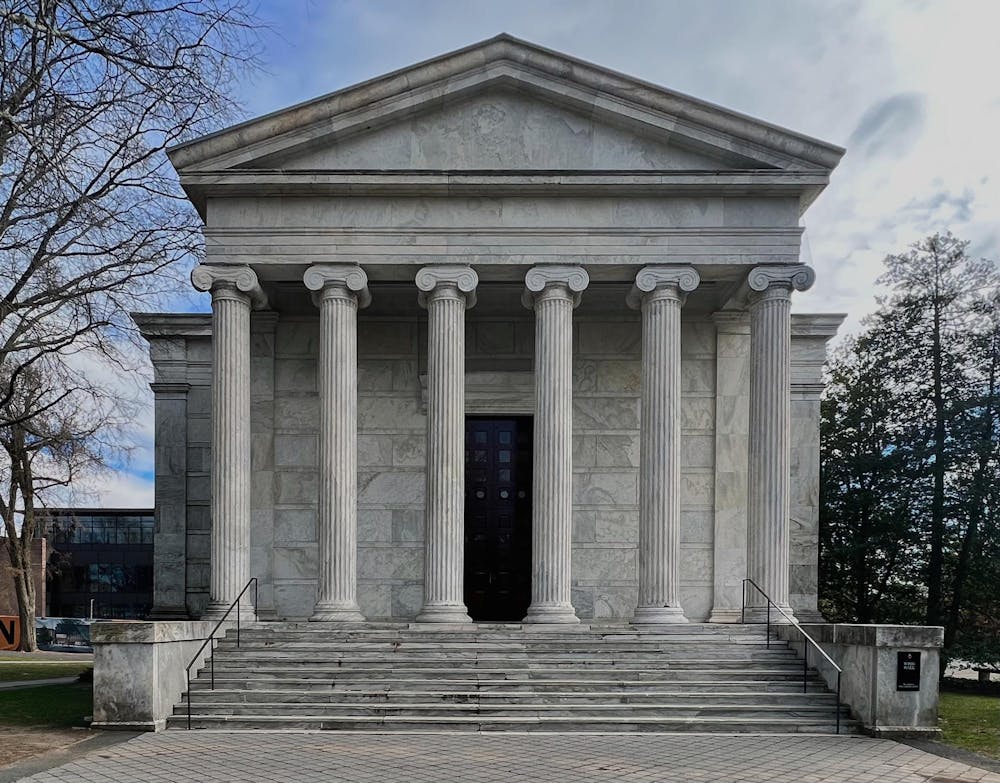Nearly two years after tumbling down the steps of Whig Hall and being charged for simple assault and trespassing, seven months after he was found not guilty of the final remaining charge, and two-and-a-half months after he sued the University and Assistant Vice President for Public Safety Kenneth Strother over the incident, David Piegaro ’25 finally has Princeton’s response to his lawsuit: They want to dismiss it.
The response, submitted on Nov. 12 by University lawyer Lawrence S. Lustberg, asks the court for a pre-motion conference in advance of filing a motion to dismiss the complaint or, alternatively, immediate leave to file a motion to dismiss.
Initially, the University was supposed to respond by Sept. 30. They received two extensions.
In April 2024, Piegaro was arrested in the aftermath of the Clio Hall occupation during Princeton’s “Gaza Solidarity Encampment.” He was charged with simple assault for an altercation with Assistant Vice President of Public Safety Kenneth Strother on the steps of Whig Hall while trying to record a conversation between Strother, Professor Max Weiss, and Co-Director of the Program in Science and Global Security Zia Mian.
According to Strother and the University, Piegaro had attempted to follow the three into Whig Hall, at which point Strother acted to prevent his entry. While Strother and the University alleged that Piegaro had grabbed Strother’s arm, which led to a scuffle in which Piegaro lost his footing and fell down the stairs, Piegaro and his defense alleged that Strother “dropped” him down the steps of the building during his arrest.
Following the fall, Piegaro was arrested and charged with the simple assault of Strother and the trespassing of Whig Hall. Piegaro sustained minor injuries. Earlier this year, the charge of trespassing was dropped and Piegaro was found not guilty of simple assault.
But Piegaro also wanted an apology. In August, Piegaro and his attorneys sued the University, requesting a jury trial, seeking unspecified damages, expungement of Piegaro’s disciplinary violations from his school records, and a declaration that the University violated Piegaro’s rights.
The University’s response, sent to the Honorable Zahid N. Quraishi of the United States District Court for the District of New Jersey, argued that Piegaro’s accusations fall short of relevant evidentiary standards.

Princeton responds to Piegaro’s claims of unlawful arrest, malicious prosecution, and retaliation by noting that the municipal court found probable cause for his arrest.
The response also counters Piegaro’s claim that Chief Strother fabricated evidence in his police report and lied during testimony, citing a standard set in Boseman v. Upper Providence Twp. that disputed or incorrect testimony does not meet the “notable bar” for pleading fabrication.
The University also responds to Piegaro’s claim that the University should be held accountable for improper training of its employees, writing that Piegaro is required to prove that there is a University “policy or custom” that “causes a constitutional deprivation” — specifically, that there is “deliberate indifference” to peoples’ rights and a pattern of constitutional violations.
Finally, the University’s response argues that Piegaro’s claim that Strother intentionally inflicted emotional distress does not meet the required threshold for “extreme and outrageous conduct” that “intentionally or recklessly causes severe emotional distress to another.“

“No allegations satisfy this ‘elevated threshold,’ because Plaintiff ‘does not contend that he was beaten, held under unbearable conditions, or otherwise severely mistreated in any manner during [his arrest],’” the response reads.
The University expects a response to this filing in the coming months.
Luke Grippo is an assistant News editor for the ‘Prince.’ He is from South Jersey, and typically covers University and town politics, on a national, regional, and local scale. He can be reached at lg5452[at]princeton.edu.
Please send any corrections to corrections[at]dailyprincetonian.com.
Editor's note: The headline of this piece has been updated to better reflect the specific legality of the case.








